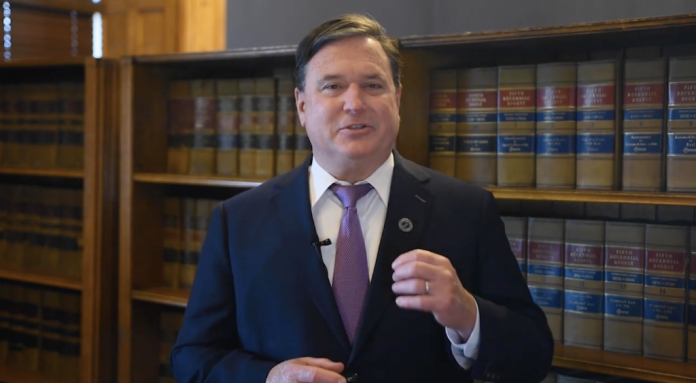
By Whitney Downard | Indiana Capital Chronicle
For The Republic
INDIANAPOLIS — In a Friday opinion, Attorney General Todd Rokita rebuked the Federal Bureau of Investigation (FBI) for denying certain Hoosiers with expunged criminal records the right to purchase a firearm.
“In Indiana, we believe expungement restores civil rights, including Hoosiers’ Second Amendment rights,” Rokita said in a release. “America values justice and liberty for all, and this includes reinstating the right to vote, hold public office, serve as a juror, and purchase a firearm.”
The opinion was requested by the Indiana State Police concerning an FBI move to deny Hoosiers convicted of serious violent felonies when their crimes have been expunged. Rokita argues that the state, through the Indiana legislature, has determined that expungement restores a Hoosiers’ right to own and purchase a firearm.
That list of crimes eligible for expungement consideration does not include the following felonies:
- sex or violent offender
- a person convicted of official misconduct
- a person convicted of any homicide offense
- a person convicted in any human or sex trafficking offense
- a person convicted of any sex crime offense
- a person convicted of two or more felony offenses that involved the unlawful use of a deadly weapon and were not committed as part of the same episode of criminal conduct
- a person convicted of a felony that resulted in the death of another person
The “sex or violent offender” section of the expungement law includes a list of specific felonies that are ineligible, such as murder, kidnapping and rape.
But the FBI is using a different definition in state law for “serious violent felon” that is much wider. For instance, that list includes crimes such as stalking, robbery, dealing controlled substances and resisting law enforcement while the expungement list does not makes those ineligible.
In the four-page opinion, Rokita acknowledges that the Indiana Supreme Court hasn’t weighed in on the issue but, in an accompanying release, asserted that “these exceptions aim to keep people safe from violent felons obtaining weapons while also preserving the rights of those who have had more minor crimes erased or expunged from their criminal record.”
Other rights restored following an expungement include the right to vote, hold public office and serve as a juror. The legislature — in the law restoring rights — made sure to exclude domestic violence offenders, who are not allowed to possess a firearm even after expungement.
“In Indiana, a person who commits a serious violent felony and then has their felony conviction successfully expunged in a court, must be treated as if they had never been convicted of the offense,” Rokita concludes in the opinion.
— The Indiana Capital Chronicle covers state government and the state legislature. For more, visit indianacapitalchronicle.com.




